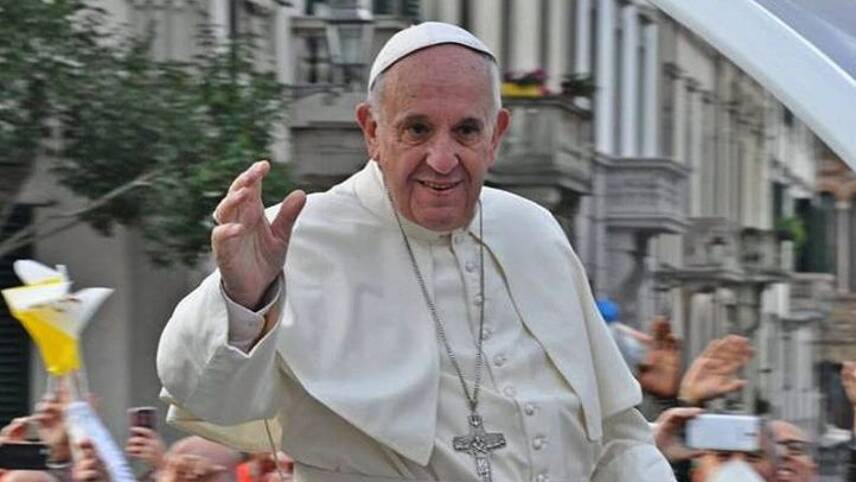Register for free and continue reading
Join our growing army of changemakers and get unlimited access to our premium content

Both religious leaders used their speeches to declare a "climate emergency". Image: Zebra48bo/Wikimedia Commons Zebra48bo [CC BY-SA 4.0 (https://creativecommons.org/licenses/by-sa/4.0)]
Given during the World Day of Prayer on Sunday (1 September), Pope Francis’ speech urged governments, businesses and individuals alike to stop “act[ing] like tyrants in regards to creation” and instead take “drastic measures” to cut carbon emissions and preserve biodiversity.
“We have caused a climate emergency that gravely threatens nature and life itself, including our own,” Francis said.
“Now is the time to abandon our dependence on fossil fuels and move, quickly and decisively, towards forms of clean energy and a sustainable and circular economy.
“Our prayers and appeals are directed first at raising the awareness of political and civil leaders… [who should] renew commitments decisive for directing the planet towards life, not death.”
Specifically, Francis urged delegates at the UN Climate Action Summit in New York to re-affirm their commitments to the Paris Agreement and to back these pledges up with strong policy frameworks. He listed fossil fuels and improper land use as key action areas, along with plastic, air and chemical pollution.
“[At the Summit], governments will have the responsibility of showing the political will to take drastic measures to achieve as quickly as possible zero net greenhouse gas emissions and to limit the average increase in global temperature to 1.5C with respect to pre-industrial levels, in accordance with the Paris Agreement.”
Church of England response
Justin Welby’s speech, also delivered on Sunday, took a slightly different approach, with the Archbishop directing his call to action at the global investor community.
He called on fund managers to remove fossil fuel firms from their portfolios and to push the companies they invest in to drastically reduce their environmental impact – specifically through alignment with the Paris Agreement via science-based targets.
Investors, Welby said, have “not sufficiently stepped up to the plate” on driving the low-carbon transition – including the Church of England’s own fund arm.
“We know it’s unquestionable that investors acting together can influence outcomes on everything, including climate change,” Welby said, proclaiming the current state of environmental affairs “a climate emergency”.
“It is in investors’ power to help avert the disastrous consequences – ethical and financial – of failing to achieve the Paris goals.”
During last year’s UN Climate Summit, a coalition of global investors warned that the world will face a financial crash several times worse than the 2008 crisis by 2030 if the aims of the Paris Agreement aren’t embedded into financial systems in the coming years.
Since then, several strong moves have been taken by leading firms in the financial space. A coalition of almost 400 investors with $23trn in collective assets has pledged to align with the Paris Agreement; as have several big-name banks such as ING. Investors are increasingly pressing big-name businesses for more transparency on sustainability, including oil majors, carmakers and airlines.
Nonetheless, just one in eight publicly-listed corporates has set carbon reduction targets in line with the Paris Agreement. Moreover, the majority of investors still stand to make losses due to climate inaction according to a recent UN study, which placed the value of losses over the next decade at $10trn globally.
According to Welby, this is, in part, due to funds tracking indexes rather than picking and choosing individual shares.
“Passive investment … may be the right investment solution for many, but passive stewardship is the answer for no one,” he concluded.
Welby is notably a former oil executive, having worked in the sector for 11 years before taking up his current position. Since he was instated in 2013, The Church of England has adopted a new climate change policy which will see it divest from coal mining and oil from tar sands.
Sarah George


Please login or Register to leave a comment.